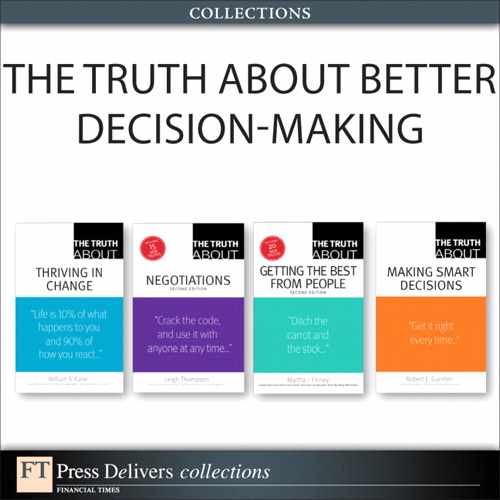Truth 31. You can influence without authority
You have a nice office or cube; maybe there's a nearby window. You have a shiny nameplate. You have the "title" you always wanted—reflective of progressive managerial accountability and good organizational standing. You proudly display your business cards in a holder on your desk. If anyone expresses doubts or questions about who's in charge, simply refer them to the organizational chart. Hollywood might portray you with charisma, confidence, and gusto, as you oversee the operations for your team.
In a few words—you're the "Top Dog!"
But beneath this Norman Rockwell-like veneer is a far different and more complex reality.
You're growing increasingly frustrated with the time it takes to get things done. Bureaucratic red tape seems to be more and more a part of your day. Cross-functional decisions take long on choices that you deem to be pretty straightforward. Correspondence feedback lags from parties at all levels. You just don't seem to be getting as much changed with and through others as you'd hoped.
Part of the solution to this dilemma may lie in understanding how power works in your organization and applying your lessons learned. This is especially true in a dynamic business environment.
Power is the ultimate managerial aphrodisiac. It concerns your ability to bring influence and subsequent change to people, processes, and systems. Over 70 percent of managers possess a high "power orientation" compared with the general population; "successful" managers score even higher.
Over 70 percent of managers possess a high "power orientation" compared with the general population; "successful" managers score even higher.
When it comes to power, your challenge is twofold. First, by observation and experience, identify and align yourself with the real decision makers in the organization and the people whom they take advice from. Second, beyond the formal authority of your position, determine how power may be obtained and judiciously used as a tool of influence with others.
What you share and how often will be the basis for trust in many of your organizational relationships.
Regarding the latter challenge, you may glean power from a variety of nonexclusive sources, such as the following:
- Information— Information is the ultimate power asset, particularly when you're the sole message source, caretaker, or provider. What you share and how often will be the basis for trust in many of your organizational relationships. It will also have a direct impact on your team's performance. (That is, as discussed later in this book, more sharing equals greater collaboration, which translates to enhanced productivity.)
- Expertise— Knowledge isn't power; however, its application is. Technical knowledge is about how things work; social knowledge is about people.
As a source of expertise on a given subject matter, your words carry enhanced credibility and authority. - Coercion and reward— You have the ability to recognize all of your coworkers. With your team, you also have the ability to reward, and coerce and punish.
Your ability to govern these allows you a certain degree of direct and indirect control over other's behavior: - Personality— Possessing passion, confidence, and charisma—like John F. Kennedy or Ronald Reagan—can cause others to identify with and admire you.
- Deference— Age, experience, and organizational tenure may cause others to comply with your words and intentions.
- Obligation— If you do someone a favor or go beyond the call of duty now, that person will likely feel indebted to return the favor at a future point.
- Association— If you want to look skinny, hang out with fat people. If you want to get things done in an organization, find a way to connect with the "movers and the shakers."
To use your power effectively, know where it's derived from and exemplify it appropriately. For example, if you represent yourself as having a certain level of experience or expertise, but it's later discovered that you don't, you will have done yourself and the organization a regrettable disservice. Likewise, if you threaten an employee with discipline, but you aren't prepared to follow through on the ultimatum; your managerial credibility will be eroded.
